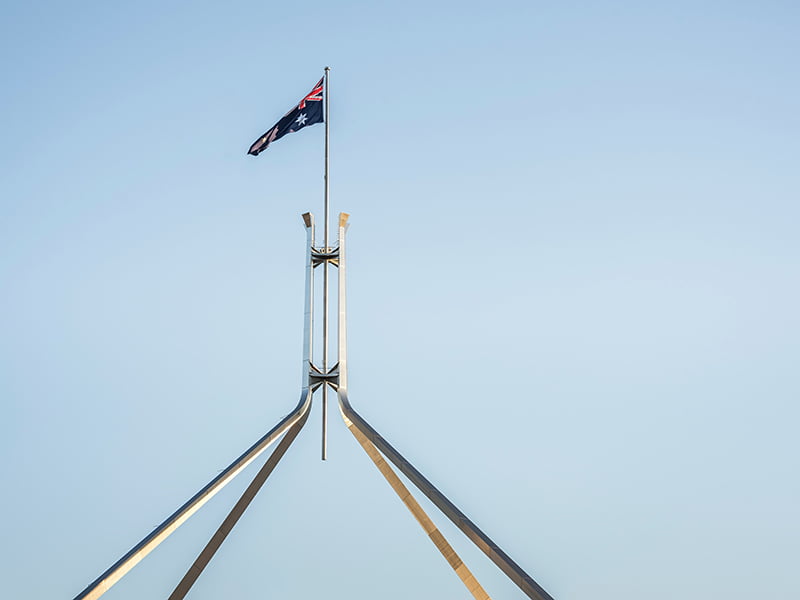The Albanese government should use the upcoming federal Budget to lift its focus on artificial intelligence, including by “fast-tracking” millions in grants that have been locked up for two years, according to the Australian Information Industry Association.
Amid the meteoric rise of generative AI, which has created a figurative arms race between tech giants, the AIIA has used its pre-Budget statement to reiterate the need for the government to release funding for AI research and industry development.
The former Coalition government set aside $124 million for a range of measures in the 2021-22 federal Budget, including $53.8 million for a National AI Centre and $55.7 million in grants funding – $12 million to build AI capabilities in the regions and $33.7 million in national challenges grants.
While the national AI centre, hosted by the CSIRO and led by former Microsoft global head of AI solution sales Stela Solar, launched in 2021, the grants funding is still to reach industry more than two years on.

AIIA chief executive Simon Bush told InnovationAus.com that the delay in the allocation of funding was “disappointing”, with member organisations of the peak body frustrated by the government’s unhurried approach.
Having had time to assess the program, Mr Bush said the May Budget is “an opportunity to allocate that funding where it needs to be allocated”, noting that AI is a critical technology recognised by the government.
“We believe there should be an element of focus on commercialisation [in the AI Action plan funding], so we’re calling for that money now to be made available as quickly as possible,” he told InnovationAus.com.
In addition to “fast-tracking” the 2021 federal Budget funding, the AIIA is also “open to reviewing the original scope of the strategy and its implementation regarding core pillars”, according to the pre-Budget statement.
The peak body has similarly urged the government to build on Digital Transformation Agency-issued voluntary AI guidance by implementing “strict governance rules for agencies and establish[ing] an AI register to allow transparency where AI is being used by government”.
Quantum is another area of focus for the government that the AIIA believes would benefit from greater direct government investment. It previously recommended a $1 billion investment to maintain the country’s global competitiveness.
Industry minister Ed Husic has all but ruled out additional funding for quantum as part of the government’s forthcoming strategy, with money to flow from the critical technologies sub-fund in the $15 billion National Reconstruction Fund instead.
But Mr Bush said that while the budgetary environment is tight, greater funding is needed if the government “wants to peg itself against other competing economies”, pointing to the United Kingdom which last month committed £2.5 billion for its quantum strategy.
He said one way the government could boost opportunities for businesses, particularly small to medium-sized enterprises, is through direct contract with those companies, which AIIA members viewed more favourably than grants, noting that grants remain important for commercialisation.
“We urge the government to look at creating funds within the buckets of allocation of funding that doesn’t all go to grants and can be used for funding what might be viewed as cutting-edge, or slightly more risky commercial projects,” he said.
Another focus of the AIIA is a Digital Innovation Project Fund modelled on the New South Wales government’s Digital Restart Fund (DRF). The fund would earmark a portion of the money for “Australian innovation and SMEs”.
As reported by InnovationAus.com, the Secretaries Digital and Data Committee is already considering a DRF-like fund for Canberra to support federal government digital projects outside of the ordinary budgetary cycle.
Mr Bush added the government must ensure that any fund is “not ‘raided’ by agencies for business-as-usual” – a criticism the AIIA has with the NSW government’s DRF – and that it should instead be used for transformational and innovative projects
The AIIA has also backed long-term, sustainable funding for a “reimagined myGov”, as recommended by an independent audit of the platform earlier this year, although stopped short of recommending a specific fund to ensure ongoing upgrades.
Other recommendations for government include investing in the “next stage of federal digital identity”, and a national office to “drive digital twin capability development”, starting with a strategy and a standards roadmap.
“The AIIA believe the federal Budget 2023-24 presents the opportunity to ensure strategic funding is allocated to building the capacity of Australia’s digital economy, including in critical and emerging technologies, to ensure continued national resilience and economic growth,” the statement said.
Do you know more? Contact James Riley via Email.

